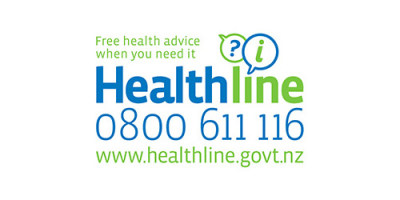The little test that is saving lives
Two years after free bowel screening began in 2018, the Nelson Marlborough Health Bowel Screening Programme is clearly starting to have long-term positive effects.
Pat Davidsen, Nelson Marlborough Health’s Acting General Manager Clinical Services, says the screening programme aims to save lives by finding bowel cancer or pre-cancerous polyps at an early stage before symptoms appear.
“Bowel cancer can be successfully treated, but only if it’s detected at an early stage. The test is an opportunity to find out about your bowel health before any symptoms are obvious. Most people will receive the all-clear and can get on with their lives, which is a huge relief for people because we have such a high rate of bowel cancer in New Zealand – it touches so many people’s lives,” Mr Davidsen says.
The life-saving programme reached its two-year milestone in mid-August 2020. In those two years:
1. 30,391 test kits have been sent and 20,258 test kits returned between (mid-August 2018 to 31 August 2020)
- 96% of returned tests were negative
- 838 (4%) of returned tests were positive
- Among the positive tests, 38 cancers were detected, more than 485 pre-cancerous polyps found and removed and 658 colonoscopies performed.
2. Between mid-August 2018 and 30 June 2020:
- The participation rate was 71.8%, compared to the national target of 60% and average national rate of 62.7%
- The participation rate for Māori was 70.6%
Now that the programme is in its third year, people will start to be invited to do a second test – if they are still aged 60-74 and eligible for free public healthcare.
“Our message for people is if they’ve done it once, to do it again,” Mr Davidsen says.
“If you returned a negative test then you’ll receive another test two years after your first one. A negative result means no further investigation is needed at that time – but regular screening is important for this age group in case bowel cancer start to develop between tests.
“Our message for people who didn’t do the test the first time is that you’ll get another chance. You’ll be sent another test kit two years after the first one. Please do it – the test is clean and easy to do in the privacy of your own home and it could save your life.”
Mr Davidsen says it’s very important that people don’t delay seeing their doctor if they have bowel concerns.
“The screening programme is for people without symptoms – it aims to pick up problems before they become symptomatic and people start noticing things.
“If you have any concerns about your bowel health – at any age, or if you are already getting the free test every two years – see your GP as soon as you can.”
Mr Davidsen also urges tangata whenua to do the test or to see their GP about any bowel health concerns. “It is especially important for Māori people, because while Māori people have lower rates of bowel cancer, they are more likely to die of bowel cancer than non-Māori.
“This is often because they are diagnosed with bowel cancer at a more advanced stage than non-Māori, so we are asking people to encourage their whānau – their mātua and kaumātua – to do the test when it comes to them in the post.”
The effects of COVID-19 on screening
Screening paused, nationwide, during Alert Level 4. For Nelson Marlborough Health (NMH) this meant that diagnostic procedures (eg colonoscopies) following a positive test result were put on hold during the period 23 Mar – 01 May. Procedures resumed again in the week starting 4 May and all those who were waiting for a procedure during lockdown have since been offered an appointment.
Mr Davidsen says that there are currently no delays in offering screening colonoscopy appointments to participants.
“Participants who held onto their kits during level 4 and 3 lockdown are now completing and sending them in. As a consequence, we anticipate a temporary increase in positive test results for the last quarter of 2020 but are planning for this so we can meet the demands for colonoscopies and other procedure.”
What people say about the test (posts made to NMH Facebook page)
- I received my result just 4 days after sending off my completed kit…that’s what you call great service
- Ours both came back clear
- So easy to do no waiting around at doctors/hospitals etc…mine also came back clear
- This is a really good thing, ours came back clear. If you get a kit use it
Facts about the National Bowel Screening Programme
- The National Bowel Screening Programme was launched in the Nelson Marlborough region on 14 August 2018. At that time Nelson Marlborough Health was the 5th district health board to start screening
- It is free of charge for people aged 60 to 74 years of age, who are eligible for public healthcare
- Invitations to participants are sent through the mail, followed by a test kit
- The kits are easy and simple to do, and samples are returned by mail for testing
- People are sent an invitation after they turn 60
- People who have completed one test, that was negative, will be sent a second test two years after the first one, if they are still eligible for the programme
- People who didn’t complete their first test will be sent a second one two years after the first one
- People are being asked to make sure their details are up to date with their GP so they don’t miss out
- For more information visit www.timetoscreen.nz or free phone 0800 924 432
Frequently asked questions
Why is bowel screening important?
Bowel cancer is the second highest cause of cancer death in New Zealand. Every year more than 3000 people are diagnosed with bowel cancer and more than 1200 die from the disease. Nelson Marlborough Health has the fourth highest rate of bowel cancer nationwide.
Bowel screening every two years can help save lives by finding bowel cancer at an early stage, when it can often be successfully treated. There may be no warning signs that someone has bowel cancer.
Bowel screening can also detect polyps. These are not cancer, but they may develop into a cancer over a number of years. Most polyps can be easily removed, reducing the risk that bowel cancer will develop.
How do I participate in the programme?
You do not have to register for the programme, but your contact details (especially postal address) need to be up to date with your GP. People are sent an invitation, consent form and test kit in the mail after their 60th birthday and again every two years if the previous test result is negative.
If you have symptoms of bowel cancer, you should see your GP immediately and not wait for a screening invitation
If either of the following apply to you then you may not receive additional screening invitations:
- you are already on a bowel polyp or bowel cancer surveillance programme (through the public health system)
- you have been treated for bowel cancer, or are currently being treated for bowel cancer
- you have had your large bowel removed
- you are currently being treated for ulcerative colitis or Crohn’s disease
How does the test work?
The faecal immunochemical test (FIT) is easy and simple to do in the privacy of your own home can detect tiny traces of blood present in a small sample of faeces (your bowel motion, or poo), which may be an early warning sign that something is wrong with a person’s bowel. Samples of faeces are sent back for testing through the mail. People with a positive result will be contacted by their GP to discuss their results and to plan further investigation.
What are the symptoms of bowel cancer?
Common symptoms of bowel cancer may include:
- a change to your normal pattern of going to the toilet that continues for several weeks
- blood in your bowel motion.
Although these symptoms are usually caused by other conditions, it’s important to get them checked by your doctor.
What does it mean if you have a positive result?
A positive test result does not necessarily mean that bowel cancer is present. Small amounts of blood in a bowel motion are most commonly caused by polyps, or other minor conditions such as haemorrhoids (piles), which can easily be treated. A positive test result means that further investigation is required. This will usually be a colonoscopy (an internal examination of the large bowel).
Why is the programme only for people aged 60 – 74 years of age?
In the Waitemata pilot, bowel cancer was most common in those over aged 60, so the programme has been designed to screen the age group where we can achieve the greatest impact for our population. However, bowel cancer can happen at any age and if you have any concerns about your bowel health you should talk with your GP.
Who can I talk to about the programme?
To find out more visit www.timetoscreen.nz, call 0800 924 432 or talk to your doctor.
Bowel cancer can be successfully treated, but only if it’s detected at an early stage. The test is an opportunity to find out about your bowel health before any symptoms are obvious. Most people will receive the all-clear and can get on with their lives, which is a huge relief for people because we have such a high rate of bowel cancer in New Zealand





